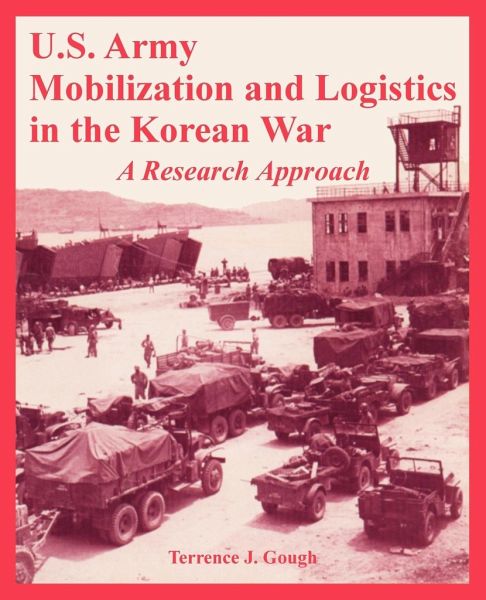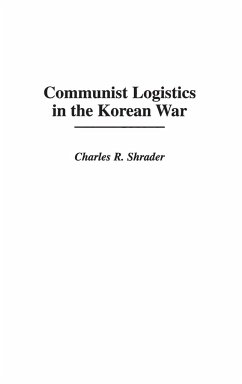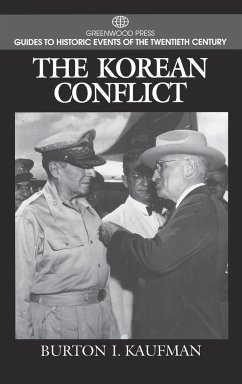
U.S. Army Mobilization and Logistics in the Korean War
A Research Approach
Versandkostenfrei!
Versandfertig in 1-2 Wochen
19,99 €
inkl. MwSt.

PAYBACK Punkte
10 °P sammeln!
In view of their crucial importance to military success, mobilization and logistics deserve thorough attention from historians. Although the Army's ability to mobilize has improved in recent years, much remains to be done, and the Korean War experience can provide valuable insights. Planners involved in the attempt to perfect current automated manpower mobilization systems need to prepare for possible strains and even collapse of those systems. In an emergency, we may have to rely on manual methods such as those that saw us through the Korean War. Industrial preparedness also has received incr...
In view of their crucial importance to military success, mobilization and logistics deserve thorough attention from historians. Although the Army's ability to mobilize has improved in recent years, much remains to be done, and the Korean War experience can provide valuable insights. Planners involved in the attempt to perfect current automated manpower mobilization systems need to prepare for possible strains and even collapse of those systems. In an emergency, we may have to rely on manual methods such as those that saw us through the Korean War. Industrial preparedness also has received increased emphasis and support in the last decade. But in this area, as well, there is much to be learned from the Korean War's partial mobilization. Finally, we can study with profit the problems encountered in supplying the large forces that we fielded in Korea. Planners who deal with theater logistics could benefit from detailed analysis, solidly grounded in original sources, of those problems and the solutions devised for them during the war. This monograph should provide impetus to examine Korean War mobilization and logistics. Through a discussion of the available literature, the author presents an overview of the most pertinent issues addressed thus far. He then suggests how future investigators might elaborate on particular points, and offers topics that warrant further research. WILLIAM A. STOFFT Brigadier General, USA Chief of Military History














